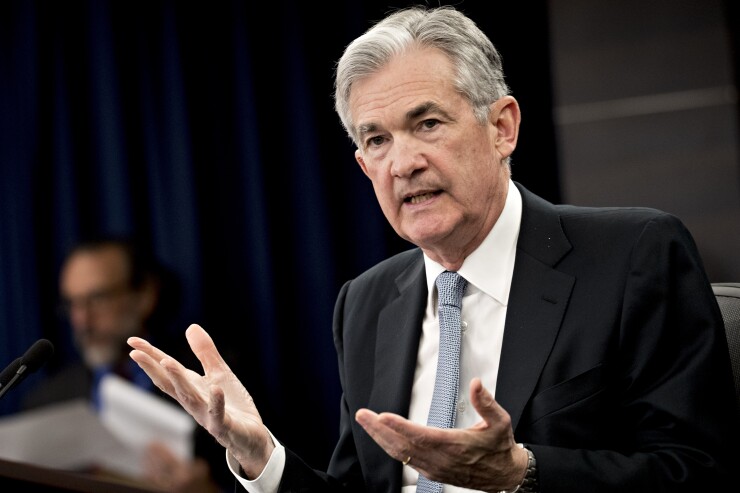Though the transition was moving slow just a few months ago, the banking industry is now making rapid progress on halting its use of the scandal-plagued London interbank offered rate, regulators said Friday.
With a key year-end deadline looming, banks have told the Federal Reserve that a majority of their new business loans in the fourth quarter did not use Libor, a top Fed official said.
“The transition away from Libor is advanced and accelerating, and our financial system will be more stable as a result,” Michael Gibson, who leads the Fed’s supervision and regulation division, said at a Financial Stability Oversight Council meeting.

Banks are supposed to stop making new Libor-based loans after Dec. 31, part of a global shift in the wake of a rate-rigging scandal several years ago.
But as late as October, U.S. banks had made
Although legacy contracts can continue referring to Libor until the middle of 2023, regulators have stressed that banks should not make new Libor loans past 2021, saying that doing so would create safety and soundness risks.
“We are seeing real progress moving away from Libor, which we need to see at this point because, of course, supervisory guidance says ‘no new Libor’ after Dec. 31,” Fed Chair Jerome Powell said at the meeting Friday.
Federal Deposit Insurance Corp. Chair Jelena McWilliams said the banks overseen by the FDIC are continuing to “move in the right direction” on the transition. Many FDIC-regulated banks, particularly smaller community banks, were never heavy users of Libor, she noted.
As banks start making more non-Libor loans, they are primarily using the Secured Overnight Financing Rate, or SOFR, according to Gibson. The Alternative Reference Rates Committee, a Fed-convened group of market participants, established SOFR as a Libor replacement in 2017.
Some midsize and regional banks have
Bank regulators have
Also at the FSOC meeting, regulators voted to create a new Climate-related Financial Risk Committee. The FSOC committee will be staffed by officials from several regulatory agencies, who will collaborate on data and initiatives relating to the risks that climate change poses to the financial system.
The committee’s creation was among the recommendations in a 133-page
The council’s annual report on risks to the financial system, which was released Friday, identified stablecoins as an “important potential emerging vulnerability” and said that the FSOC is prepared to take action if needed.
Federal regulators have raised
Regulators have also laid out potential steps that they could take if Congress does not act. One such move would be for the FSOC to designate certain stablecoin arrangements as systemically important and subject them to new rules.
The report did not detail the FSOC’s plans on the issue, but it said the council is “prepared to consider steps available to it” if lawmakers fail to pass a comprehensive law on stablecoins.
“Though stablecoins are marketed with the claim that they will maintain a stable value, they may be subject to widespread redemptions and asset liquidations if investors doubt the credibility of that claim,” the council said in the report.




